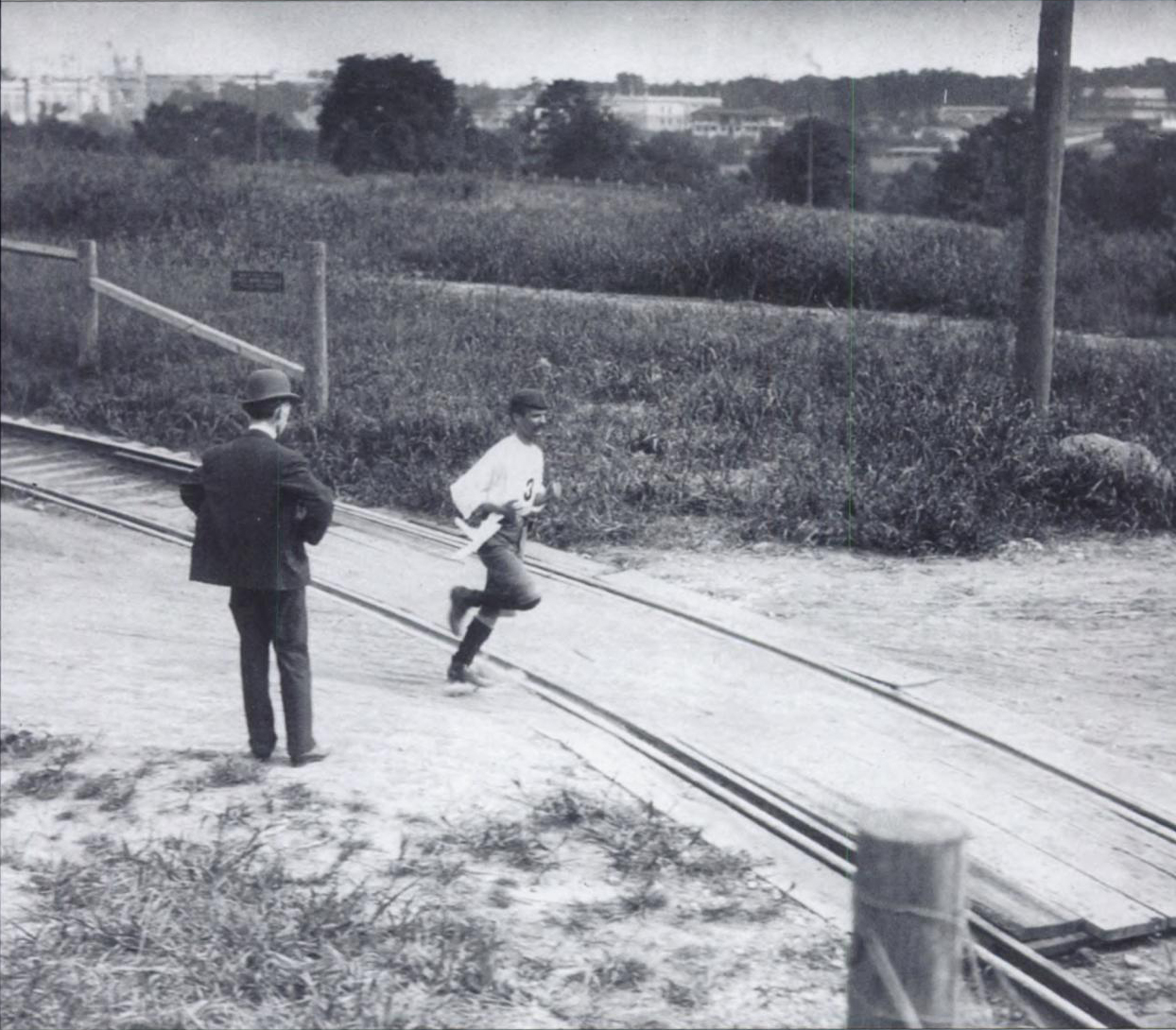1. Life
Félix Carvajal's life was marked by poverty and an extraordinary determination that led him from the streets of Cuba to an Olympic marathon.
1.1. Early Life and Background
Born in San Antonio de los Baños, Carvajal lived in poverty throughout his entire life. He was a mailman by profession, a role that honed his natural running and walking abilities. He frequently performed walking and running exhibitions across Cuba, including an impressive journey that spanned the full length of the island. Despite his recognized talent as a runner, Carvajal had never competed in a marathon before he decided to pursue his dream of participating in the Olympic Games. To fund his journey, he resorted to persuading those around him and collecting money from strangers on street corners, eventually gathering enough for his travel to the United States.
1.2. Journey to the 1904 Olympics
Carvajal traveled from Cuba to the United States with the goal of competing in the Olympic marathon at the 1904 Summer Olympics in St. Louis, Missouri. However, upon arriving in New Orleans, Louisiana, he lost all of his travel money gambling in a game of craps. Left with no funds, he was forced to hitchhike and walk the remaining distance to St. Louis. He arrived just in time for the race, appearing at the Francis Field stadium dressed in his everyday street clothes, including a beret, long-sleeved shirt, and long trousers, along with ordinary shoes. Seeing his predicament, Martin Sheridan, an Irish-American athlete and multiple Olympic gold medalist in throwing events at the same games, assisted Carvajal by hastily cutting off the bottoms of his trousers and the sleeves of his shirt to make them more suitable for running.
1.3. Later Life and Death
Carvajal's post-Olympic life continued to be as dramatic as his athletic debut. He was selected to represent Cuba in the 1906 Olympic Marathon at the 1906 Intercalated Games in Athens, Greece, with his expenses funded by the Cuban government. However, he mysteriously disappeared after landing in Italy and never arrived in Athens. He was widely presumed dead, and his obituary was even published in Cuban newspapers. Despite these reports, Carvajal eventually returned to Havana on a Spanish steamer. After this incident, he turned professional as a runner. In 1907, he defeated American distance runner Henry W. Shelton in a six-hour race. On May 8, 1909, he participated in a Marathon Derby held on a six-laps-per-mile track at the Polo Grounds in New York City. This international event featured twelve other professional marathon runners, including the notable Dorando Pietri. Carvajal, however, was quickly lapped by the leaders and remained in last place throughout the race, which was won by Henri St. Yves of France in a time of 2:44:05. Carvajal ultimately died in poverty in Havana in 1949.
2. Athletic Career
Félix Carvajal's athletic career, though brief on the international stage, was notable for his unconventional approach and remarkable resilience.
2.1. 1904 St. Louis Olympic Marathon
The 1904 St. Louis Olympic Marathon took place on August 30, 1904, with 32 athletes from four countries competing. The conditions were exceptionally harsh; the temperature soared to 89.6 °F (32 °C), and the roads were exceedingly dusty, compounded by the dust continuously kicked up by the leading cars. Furthermore, the race had only one official water station, located at the 12 mile mark, which was merely a well. As a result of these severe conditions, fewer than half of the starters, only 14 athletes, managed to complete the race.

Carvajal, having arrived in his modified street attire, performed surprisingly well. During the race, he frequently stopped to engage with spectators and even snatched some peaches from a spectator's car. Later, he spotted an apple orchard and, having not eaten for over 40 hours, decided to stop and consume two green apples. These apples, however, turned out to be unripe and caused him intense stomach pains, forcing him to take a nap to recover. Despite these unusual interruptions and the challenging conditions, Carvajal rallied, making a strong recovery to finish in an astonishing fourth place. The marathon's distance was exactly 25 mile (40 km). While the times for the top three finishers and Fred Lorz (who was disqualified for receiving a ride) are known, specific records for many other participants, including Carvajal's exact time, are not fully documented.
2.2. Post-Olympic Career
Following his memorable Olympic debut, Carvajal continued his athletic endeavors. In 1905, he returned to St. Louis to compete in the inaugural All-Western Marathon, where he secured a third-place finish with a time of 3:44. His participation in the 1906 Intercalated Games was marred by his disappearance in Italy, leading to reports of his death before his eventual return to Havana. After this, Carvajal transitioned to professional running. In 1907, he achieved a victory against American distance runner Henry W. Shelton in a six-hour race. His final documented professional race was the 1909 Marathon Derby in New York City, where despite competing alongside prominent international marathoners like Dorando Pietri, Carvajal finished in last place.
3. Legacy and Public Recognition
Félix Carvajal's unique life story and his remarkable performance at the 1904 Olympics, characterized by resilience against adversity, have ensured his place in athletic folklore and inspired various forms of public recognition.
3.1. In Literature and Media
His life has been chronicled in the Spanish language book Félix Carvajal, corredor de maratón (Félix Carvajal, Marathon Runner), written by Bernardo José Mora. Carvajal's story also reached a wider audience through media. A 1956 episode of the American anthology television series Telephone Time was dedicated to his life. Titled "Felix the Fourth," the episode featured actor Pedro Gonzalez Gonzalez in the title role, bringing Carvajal's compelling journey to a national television audience.